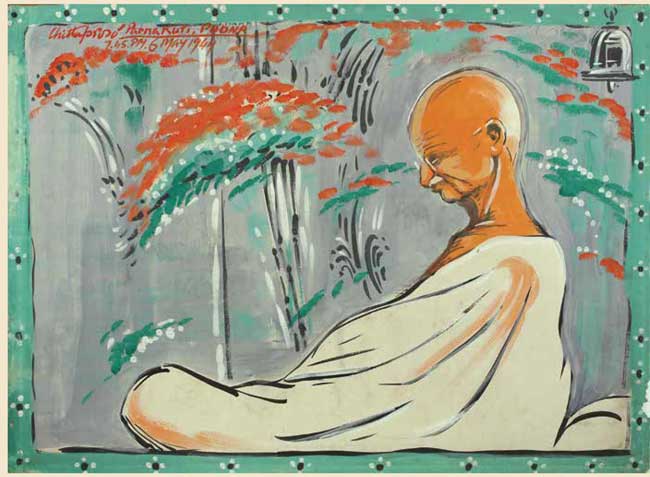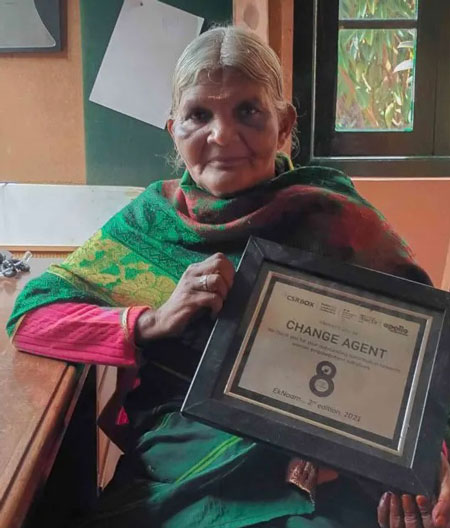BLACK MONEY WHITE PAPER
[…] The “White Paper on Black Money” presents the different facets of black money and its complex relationship with policy and administrative regime in the country. It also reflects upon the policy options and strategies that the Government has been pursuing in the context of recent initiatives, or need to take up in the near future, to address the issue of black money and corruption in public life. There is no doubt that manifestation of black money in social, economic and political space of our lives has a debilitating effect on the institutions of governance and conduct of public policy in the country. Governance failure and corruption in the system affect the poor disproportionately. The success of an inclusive development strategy critically depends on the capacity of our society to root out the evil of corruption and black money from its very foundations. Our endeavour in this regard requires a speedy transition towards a more transparent and result oriented economic management systems in India.. […]
Cash has always been a facilitator of black money since transactions made in cash do not leave any audit trail. So far, efforts to regulate and control cash transactions have been constrained due to two reasons. The first is that the poor have to deal in cash, particularly in the rural sector, and accordingly payments on account of labour wages or those made to rural artisans and institutions need to be made in cash. Second, the costs of transaction imposed by any regulations are likely to spread across the economy and affect both consumers and producers, thereby leading to resistance and lack of support for such a move. […]
Pranab Mukherjee, Finance Minister, New Delhi 16 May 2012
MINISTRY OF FINANCE DEPARTMENT OF REVENUE CENTRAL BOARD OF DIRECT TAXES
Source: “White Paper on Black Money tabled in the Lok Sabha by Finance Minister Pranab Mukherjee”, News / Resources, The Hindu, 21 May 2012
URL: http://www.thehindu.com/multimedia/archive/01089/WhitePaper_on_Blac_1089758a.pdf
Date Visited: 28 July 2012
Former President of India Pranab Mukherjee is all set to teach public policy and inclusive development to the students of Indian Institute of Management (Ahmedabad). The IIMA students across PGPM (Post Graduate Programme in Management), FABM (Food and Agri-Business Management) and PGPX (Post Graduate Program in Management for Executives) will attend a course called ‘Public Policy for Inclusive Development of India‘ soon. […]
The course deals with a broad overview of the interplay between the desired end of inclusive development and the system of parliamentary democracy in India. Mukherjee will deliver lectures on constitutional provisions for socio-economic inclusivity, policy and institutional intervention for financial inclusion and articulating policy and institutional agenda for future transformation of India. Out of these, certain sessions will also include presentations of selected student projects that address developmental and institutional challenges identified in the beginning of the course. […]
Source: “Pranab Mukherjee all set to teach public policy at IIM Ahmedabad” by Kiran Tare (India Today, 8 September 2018)
URL: https://www.indiatoday.in/india/story/pranab-mukherjee-all-set-to-teach-public-policy-at-iim-ahmedabad-1335295-2018-09-08
Date Visited: 4 March 2022
There is no denying the fact that there is widespread corruption in India. Petty corruption which affects the basic rights and services of the common man is highly rampant besides the grand corruption scandals which break out every now and then. A report on bribery in India published by Trace International in January, 09 states that 91% of the bribes were demanded by govt. officials.
Source: “Battling India’s malaise of Corruption”, Address to the India CEO Forum (undated)
“Battling India’s malaise of Corruption” (Address to the India CEO Forum, accessed 6 July 2022)
URL: https://cvc.gov.in/sites/default/files/CEO.pdf
Date Visited: 6 July 2022
“Opportunities are limited, jobs are scarce and so far ‘development’ remains a slogan. There’s a lot that is being done to keep caste going in spite of saying that we are trying to erode caste. We are, of course, dodging the real issue. It’s true that there has been a great deal of exploitation of Dalit groups and OBC’s [Other Backward Castes] in past history; making amends or even just claiming that we are a democracy based on social justice demands far more than just reservations. The solution lies in changing the quality of life of half the Indian population by giving them their right to food, water, education, health care, employment, and social justice. This, no government so far has been willing to do, because it means a radical change in governance and its priorities.” – Romila Thapar (Emeritus Professor of History, Jawaharlal Nehru University) in You can’t run disciplines on the basis of the notions that particular governments may have”: An Interview with Romila Thapar by Nikhil Pandhi (Caravan Magazine, 7 October 2015) | Learn more >>
“The theoretical debate on caste among social scientists has receded into the background in recent years. [C]aste is in no sense disappearing: indeed, the present wave of neo-liberal policies in India, with privatisation of enterprises and education, has strengthened the importance of caste ties, as selection to posts and educational institutions is less based on merit through examinations, and increasingly on social contact as also on corruption.” – Harald Tambs-Lyche (Professor Emeritus, Université de Picardie, Amiens) in “Caste: History and the Present” (Academia Letters, Article 1311, 2021) | Learn more >>

Gandhian social movement | Constitution | Adverse inclusion >>

A case-study from Argentina and its rise from institutional and financial bankruptcy:
Wayne Ellwood argues that co-ops – democratic, community-focused – offer an egalitarian way out of our current mess.
[…] After years of enforced austerity and ‘structural adjustment’ the resource-rich South American country was awash in debt, crippling inflation, staggering unemployment and negative economic growth. (Notice any parallels with present day Greece and Spain?) […]
With inflation raging and tens of thousands of workers on the streets, the government finally called it quits, defaulting on its debt and devaluing its currency. Predictably, the kingpins of global finance went ballistic, warning that Argentina would sink into penury and chaos.
It didn’t happen. Over the next decade the country’s GDP grew by nearly 90 per cent, the fastest in Latin America. Poverty fell and employment rose steadily while government spending on social services slowly increased.
Many factors contributed to this astounding turnaround […]
So when the national economy collapsed and the country’s business class started to bail out, abandoning factories and stripping assets, the workers had a better idea. They decided to form worker co-ops and run the factories themselves. The movement became known as las empresas recuperadas (recovered companies). […]
What began as a brave experiment after the economic collapse of 2001 has become a vibrant and stable part of the economy. According to University of Buenos Aires researcher Andrés Ruggeri: ‘The workers learned that running a company by themselves is a viable alternative. That was unthinkable before… These are workers who have got back on their feet on their own.’ […]
A good idea takes root
Where plants are closed down, worker co-operatives can reopen them. The ‘recovered factories’ co-op movement is spreading in Latin America. There are 69 ‘recovered factories’ in Brazil, around 30 in Uruguay, 20 in Paraguay and a handful in Venezuela. […]
Co-operatives can point the way towards a different kind of economic model, where people control capital and not the other way around.
A little real democracy wouldn’t hurt.
Source: “Can co-operatives crowd out capitalism?” by Wayne Ellwood, New Internationalist Issue 454 (1 July 2012)
URL: https://newint.org/features/2012/07/01/co-operatives-international-year/
Date Visited: 26 February 2022
[Bold typeface added above for emphasis]
Brought up in a system in which all communications are by word of mouth, and hence used to trusting verbal statements, tribal populations get confused by constant reference to documents and written rules, which increasingly determine all aspects of rural life.
Tribes of India: The Struggle for Survival >>
Find publications by reputed authors (add “open access” for freely downloadable content)
PDF-repository: texts quoted & further reference (Google Drive) >>
Learn more
Atree.org | Ashoka Trust for Research in Ecology & the Environment (posts)
Biodiversity | Hyderabad biodiversity pledge | Nilgiri Biosphere
Climate change | United Nations on climate change
eBook | Background guide for education
eLearning: Center for World Indigenous Studies
Health and nutrition | Recommendations by the Expert Committee